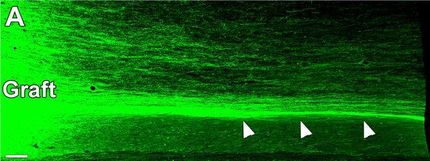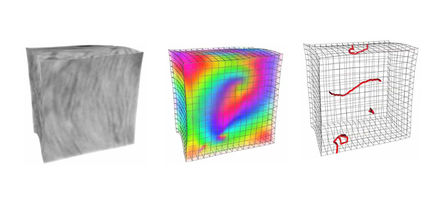Cardiac stem cells from heart disease patients may be harmful
Patients with severe and end-stage heart failure have few treatment options available to them apart from transplants and "miraculous" stem cell therapy. But a new Tel Aviv University study finds that stem cell therapy may, in fact, harm heart disease patients.
The research, led by Prof. Jonathan Leor of TAU's Sackler Faculty of Medicine and Sheba Medical Center and conducted by TAU's Dr. Nili Naftali-Shani, explores the current practice of using cells from the host patient to repair tissue -- and contends that this can prove deleterious or toxic for patients.
"We found that, contrary to popular belief, tissue stem cells derived from sick hearts do not contribute to heart healing after injury," said Prof. Leor. "Furthermore, we found that these cells are affected by the inflammatory environment and develop inflammatory properties. The affected stem cells may even exacerbate damage to the already diseased heart muscle."
Tissue or adult stem cells -- "blank" cells that can act as a repair kit for the body by replacing damaged tissue -- encourage the regeneration of blood vessel cells and new heart muscle tissue. Faced with a worse survival rate than many cancers, many heart failure patients have turned to stem cell therapy as a last resort.
"But our findings suggest that stem cells, like any drug, can have adverse effects," said Prof. Leor. "We concluded that stem cells used in cardiac therapy should be drawn from healthy donors or be better genetically engineered for the patient."
Hope for improved cardiac stem cell therapy
In addition, the researchers also discovered the molecular pathway involved in the negative interaction between stem cells and the immune system as they isolated stem cells in mouse models of heart disease. After exploring the molecular pathway in mice, the researchers focused on cardiac stem cells in patients with heart disease.
The results could help improve the use of autologous stem cells -- those drawn from the patients themselves -- in cardiac therapy, Prof. Leor said.
"We showed that the deletion of the gene responsible for this pathway can restore the original therapeutic function of the cells," said Prof. Leor. "Our findings determine the potential negative effects of inflammation on stem cell function as they're currently used. The use of autologous stem cells from patients with heart disease should be modified. Only stem cells from healthy donors or genetically engineered cells should be used in treating cardiac conditions."
The researchers are currently testing a gene editing technique (CRISPER) to inhibit the gene responsible for the negative inflammatory properties of the cardiac stem cells of heart disease patients. "We hope our engineered stem cells will be resistant to the negative effects of the immune system," said Prof. Leor.
Original publication
Nili Naftali-Shani, La-Paz Levin-Kotler, Dahlia Palevski, Uri Amit, David Kain, Natalie Landa, Edith Hochhauser, Jonathan Leor; "Left Ventricular Dysfunction Switches Mesenchymal Stromal Cells Toward an Inflammatory Phenotype and Impairs Their Reparative Properties Via Toll-Like Receptor-4"; Circulation; 2017
Most read news
Original publication
Nili Naftali-Shani, La-Paz Levin-Kotler, Dahlia Palevski, Uri Amit, David Kain, Natalie Landa, Edith Hochhauser, Jonathan Leor; "Left Ventricular Dysfunction Switches Mesenchymal Stromal Cells Toward an Inflammatory Phenotype and Impairs Their Reparative Properties Via Toll-Like Receptor-4"; Circulation; 2017
Topics
Organizations
Other news from the department science

Get the life science industry in your inbox
By submitting this form you agree that LUMITOS AG will send you the newsletter(s) selected above by email. Your data will not be passed on to third parties. Your data will be stored and processed in accordance with our data protection regulations. LUMITOS may contact you by email for the purpose of advertising or market and opinion surveys. You can revoke your consent at any time without giving reasons to LUMITOS AG, Ernst-Augustin-Str. 2, 12489 Berlin, Germany or by e-mail at revoke@lumitos.com with effect for the future. In addition, each email contains a link to unsubscribe from the corresponding newsletter.























































